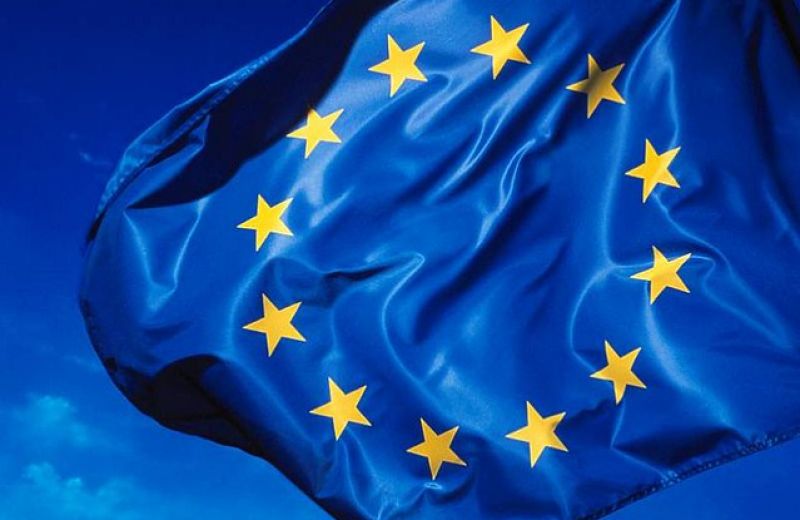
Foreign Minister Ashkenazi chose Berlin for his first official overseas visit in late August, attending an informal meeting of the EU Foreign Affairs Council, with the goal of promoting Israel-EU relations. Given the harsh anti-EU rhetoric by Prime Minister Netanyahu and senior ministers in recent years, this was not an obvious choice. It indicates a desire to fix a key component of Israeli foreign policy.
Israel’s previous government often maligned the EU, depicting it as hostile to Israel and encouraging division among its member states to prevent resolutions that are critical of Israeli policies. It did so despite the extensive cooperation that exists between Israel and the EU in numerous fields. The official rhetoric was expressed in actions, too, such as Netanyahu’s unwillingness to meet in Israel with then-EU Foreign Policy Chief Mogherini, Israeli participation in the Visegrad summit where Netanyahu expressed sharp criticism of the EU, and government-issued reports accusing Europeans of funding organizations supportive of anti-Israel boycotts and terrorism. Israelis heard the message loud and clear. The Mitvim Institute’s Israeli Foreign Policy Index indicated in 2019 that most Israelis see the EU as a foe rather than friend.
The annexation intentions that Netanyahu declared over the past year threatened a further deterioration in Israel-EU relations. Prominent European leaders warned repeatedly against annexation, calling on Israel to avoid measures that violate international law and risk regional stability, prospects of peace, Palestinian rights, Israel-EU relations and Israel’s improving ties with Arab states. While Europe did not spell out concrete consequences of annexation on its relations with Israel, there were reports about possible damage to Israel’s participation in EU programs, including the Horizon research and development program.
With the installation of the new Israeli government in May and the increased public discussion of annexation that followed, it transpired that Defense Minister Benny Gantz and Foreign Minister Gabi Ashkenazi were not enamored of the move. While they stopped short of rejecting it on principle, they presented a series of conditions that led European diplomats to believe their Blue and White party was a potential ally in fighting annexation. This realization and the messages Ashkenazi conveyed regarding Israel-EU relations created an opportunity to turn a new page, further facilitated by the suspension of the annexation idea as part of the normalization deal with the UAE.
Since taking office, Foreign Minister Ashkenazi has repeatedly underscored the importance of ties with Europe and his intention to strengthen them. He also held a series of meetings with European foreign ministers, including HRVP Josep Borrell. When Borrell took office in 2019, Israeli policymakers were concerned that he would adopt a highly critical stance towards Israel. However, and in parallel to his fierce opposition to annexation, he expressed his wish to meet Ashkenazi in Brussels; and following the Berlin Foreign Affairs Council meeting, he expressed support for renewal of the high-level political dialogue between Israel and the EU (the “Association Council”), suspended since 2012.
Israel’s ties with the EU hold much untapped potential. Both sides could benefit greatly from intensified cooperation and tighter institutional ties. However, as repeatedly proven over the past decade, the EU directly links upgrades in its relationship with Israel to progress in the Israeli-Palestinian peace process. Israel’s recent governments tried to protest this linkage, to no avail. Even if Israel does not annex territories, as long as it continues to build in the settlements, deepen control over Area C, and undermine prospects of a two-state solution – its relations with Europe will be affected negatively. True, the divisions among EU member states in recent years have precluded EU condemnation and criticism of Israeli policies, but the organization did not upgrade ties with Israel, either.
However, in 2013, the EU offered Israel and the future Palestinian state a Special Privileged Partnership with the EU once peace is reached. While the proposal was kept vague, undermining its effectiveness, successive Israeli government have avoided giving an official response to it. In parallel to this offer, the EU repeatedly rejects claims by right-wing Israeli politicians that European criticisms of Israeli policies in the West Bank, including a demand to label settlement products, is akin to encouraging boycotts of Israel. The EU underscores that the path to upgraded relations would be free and clear once Israel changes its policy.
Removal of the annexation from the agenda has created a window of opportunity to take Israel-EU relations forward. It was manifested by the invitation to Ashkenazi to meet the EU foreign ministers, and the positive attitude in Brussels regarding reconvening the Israel-EU Association Council. Germany, as president of the Council of the EU, contributed to this shift and could continue to help further until the end of its 2020 term.
Israeli-EU dialogue focused in recent years mostly on security issues in which Israel has a stake – Iran and the designation of Hezbollah as a terrorist organization. A new round of dialogue, once launched following Ashkenazi’s Berlin visit, should also deal with strengthening bilateral ties and identifying channels through which the EU can contribute to Israeli-Palestinian peacemaking and to advancing regional cooperation in the Middle East and the Mediterranean.
Israel and the EU are rediscovering each other politically and diplomatically these days. Whereas Israel’s Energy Minister said in 2018 that the EU could “go to a thousand hells”, these days the Foreign Minister is saying, “Europe is a key player in the world and is important for Israel”. This is a positive development, both for Israeli foreign policy and for prospects of restoring Israeli partnership in the club of liberal democracies. This shift should be encouraged and its continuity ensured.


